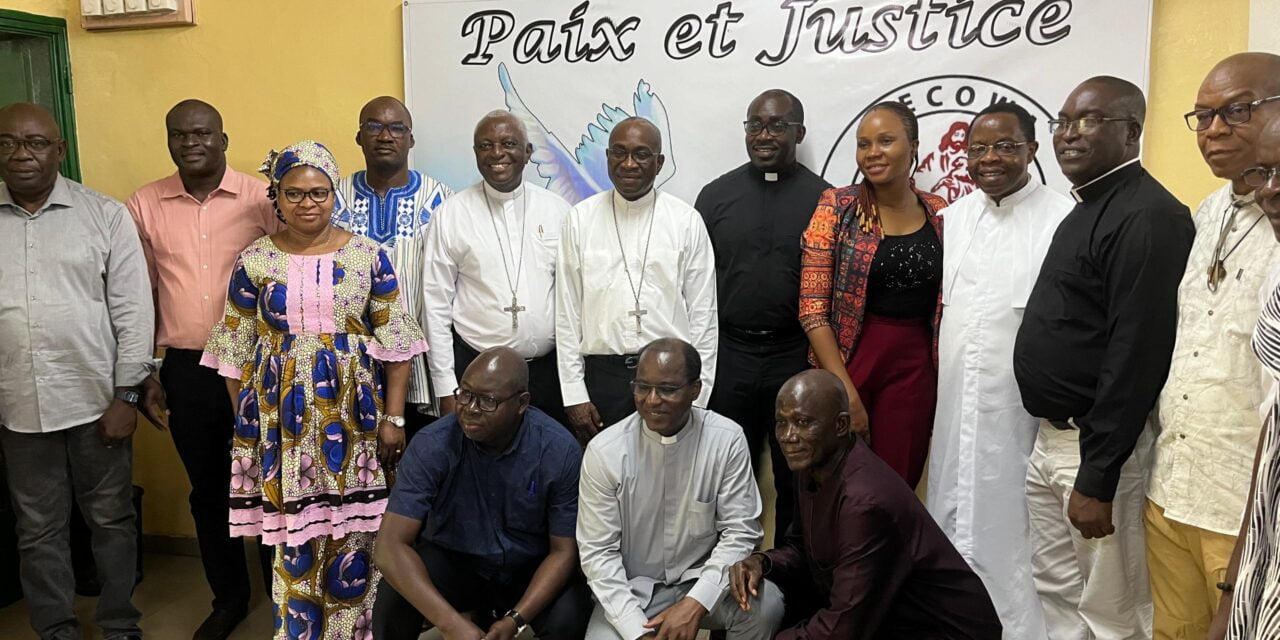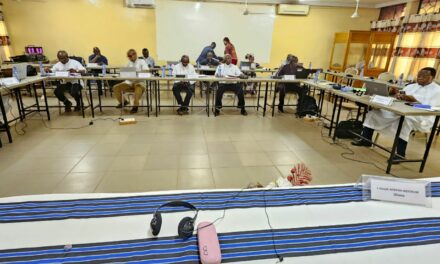Following the great need for advocacy in our current social and political situation in our West African subregion, Madam Lucy who is representing our African continent in Caritas came up with the methods and strategies for a successful advocacy. it is not enough to do advocacy but we must always aim at a successful advocacy. There are various shades of advocacy namely; self-advocacy, individual advocacy, formal advocacy, system advocacy, etc. All these will depend largely on one’s machinery. To carry out a reasonable advocacy, one must embark on an issue where he or she is well grounded not from hear-say or what one gathers from the website. Any effort which a particular person or a group makes to push a given agenda may be referred to as lobbying.
In advocacy, there is an urgent need for policy dialogue. When we embark on dialogue, one must prepare one’s mind to win or lose the case. There may also be a case when one gets half of one’s request or a different thing altogether. There is also need for media and communications. We are called upon to use the radios and televisions in the dissemination of various information which are advocacy based.
There is often this cardinal challenge like freedom of speech as we see it in certain countries today. At times it is there like unwritten law that no one should speak out. In this case RECOWA-CERAO can step in as a powerful force to speak for the silenced masses. This is a powerful means of advocacy. Some advocacy groups in suppressed countries can also make use of Human Right Activists which are all over the world. Presently there are various portals on the internet where we can upload the problems of the masses in various countries and they will be addressed. The lecturer made us understand that advocacy is not one-dose activity. One must talk and continue talking and the result may not be at sight but on the long run, the result will eventually surface. One can also get connected with European Union and other foreign bodies. The Secretary-General gave a typical example on what happened in the case of Niger. RECOWA-CERAO stepped into the situation of Niger by convoking a press conference, meeting with ECOWAS authority, going to the Niger embassy and meeting with the president. The message was clear and it bothered on the fact that you cannot solve one problem by creating another.
Bishop Andrew Karnley narrated his advocacy efforts when his country wanted to pass an obnoxious bill and how he went through his friend in the government and the bill was repilled. The representative from Nigeria cited his effort while the bishop in-charge of Laity and family, bishop Francois GNONHOSSOU gave a concrete example of their collective efforts in advocacym in the Republic of Benin. The representatives regret the level of misappropriation of funds in Africa. One gave a sad example with his country where the leaders borrowed money and share it instead of working for the people with this money and at the end they will ask for the cancellation of debt. From Niger we got a fairly-good news from the man in-charge of Caritas in this country who is privileged to be the classmate of the current prime minister and the minister for transport. In his case his advocacy becomes very easy.
The representative from Benin Republic took up again the case of the government borrowing and our struggling to advocate for the cancellation of the debts not minding that they do not do anything visible with the borrowed money. The voice from Liberia regrets that the government signs a lot of debts that have a long adverse effect on their country. The lecturer took up by emphasizing that Africa will remain the way it is for other countries to keep thriving. This is unfortunate because our leaders have chosen to remain beggars. The mechanism is set that we must continue depending on these foreign bodies.
In conclusion, Bishop Francois gave us hope when he drew a very interesting example with what is going on presently in Ethiopia. This country established an aviation company and the result is evidently clear today. He made us understand that in the famous Ethiopian Airways, every worker including the pilots are all Ethiopians. This is an example worthy of emulation. At this point, the guest lecturer advised and encouraged us to begin patronizing the small-scale businesses by our poor village men and women as our little efforts in contributing to the growth of our continent economically,

- RECOWA-CERAO WELCOMES TWO NEW BISHOPS - July 26, 2024
- TODAY WE ARE TAKING UP THE THIRD SEGMENT IN OUR SERIES - July 26, 2024
- CHARACTERISTICS OF GREAT LEADERS SHARED BY A USA AUTHOR - July 25, 2024







